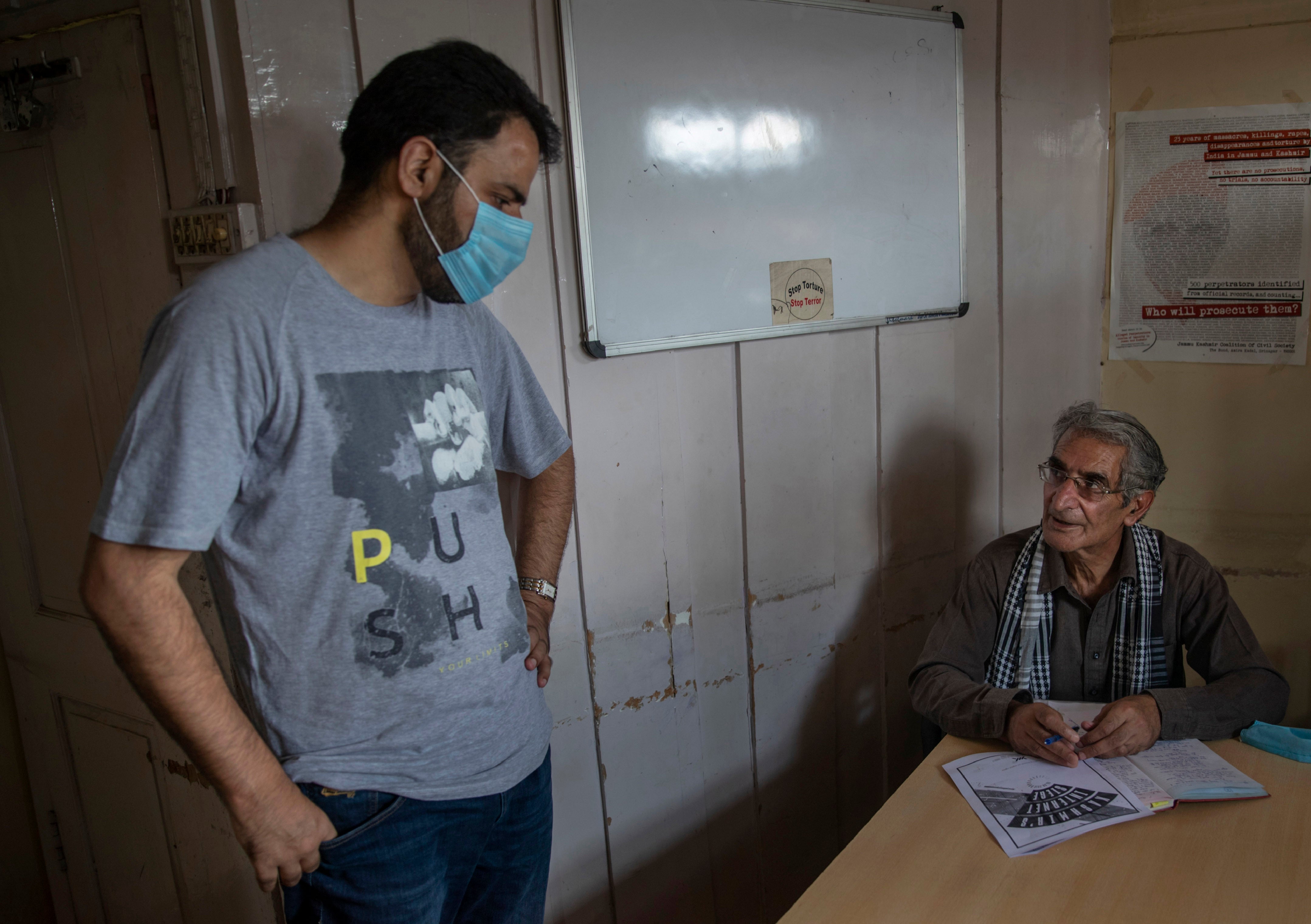Khurram Parvez: UN says it is ‘deeply concerned’ by India’s arrest of leading Kashmiri human rights defender
India dismisses UN body’s allegations as baseless and unfounded

The United Nations has said it is “deeply concerned” by the arrest of Khurram Parvez, a prominent human rights activist from the Indian federal territory of Jammu and Kashmir last month.
The Indian government, however, has dismissed the agency’s statement as biased.
The Geneva-headquartered UN Human Rights office also raised alarm over the “rise in killings of civilians” by “armed groups” and Indian security forces during encounters in the Indian-side of Kashmir.
“We are deeply concerned at the arrest of Kashmiri human rights defender Khurram Parvez under Indian counter-terrorism legislation, the Unlawful Activities (Prevention) Act (UAPA),” the Office of the UN High Commissioner for Human Rights (OHCHR) spokesperson Rupert Colville said on Wednesday.
Mr Parvez, who is a vocal defender of human rights in Kashmir, was arrested on 22 November by India’s top anti-terrorism agency under a controversial anti-terrorism law which makes it almost impossible to get bail.
He was accused of “terror-funding” and “conspiracy” over an ongoing probe in a case involving illegal money transfer for alleged terror activities.
His arrest caused widespread outrage among activists and led to calls for his release.
The OHCHR said the agency was unaware of the “factual basis of the charges” and called on Indian authorities to release him in order to safeguard “his right to freedom of expression” and personal liberty.
UAPA allows Indian authorities to detain people without producing any incriminating evidence and keep people in prison without trial by setting stringent requirements for bail.
During prime minister Narendra Modi’s regime, the law has been unabashedly used against the government’s critics, which include students and journalists, to throttle dissent. UAPA has been dubbed as draconian and stringent by critics of the law in India after the scope of the law was expanded under the ruling Bharatiya Janata Party (BJP) government.
On Wednesday, OHCHR reiterated its call to make amendments in the law to bring it in line with international human rights standards.
The UN agency also said that it was “increasingly alarmed by the rise in killings of civilians, including members of religious minorities, by armed groups in Indian-administered Kashmir this year”.
“At the same time, civilians have been killed by security forces in the course of counter-terrorism operations, and their bodies on occasion disposed in secret,” it added.
It singled out a recent encounter in Srinagar’s Hyderpora area on 15 November, in which four people were killed in an alleged counter-terrorism operation. Families claimed that three of those killed were innocent civilians, leading to protests.
Their bodies were secretly buried by local police without the knowledge of their kin, who alleged that Indian troops used them as human shields. After a public outcry, the bodies of two civilians were later exhumed and returned to their families.
“We call on the security forces and armed groups to exercise restraint, and to ensure that the rise in tensions in Jammu and Kashmir in recent weeks does not lead to further violence against the civilian population,” OHCHR added.
Responding to the statements by the human rights body, India criticised the OHCHR for the lack of understanding of cross-border terrorism in Jammu and Kashmir.
India urged the UN to “develop a better understanding of the negative impact of terrorism on human rights.”
“The statement makes baseless and unfounded allegations against law enforcement authorities and security forces of India,” Arindam Bagchi, spokesperson for India’s foreign ministry, said on Thursday.
The 42-year-old rights defender is the programme coordinator of the civil rights group Jammu and Kashmir Coalition of Civil Society (JKCCS). For over two decades, Mr Parvez has been highlighting human rights abuses in Indian-administered Kashmir by the country’s troops.
JKCCS has published several reports of alleged violence at the hands of Indian troops, including torture, sexual assault, extrajudicial killings and unmarked mass graves.
He is also the chairperson of the Asian Federation Against Involuntary Disappearances, a Philippines-based international rights organisation that examines forced disappearances in Asia. He received the Reebok Human Rights Award in 2006.
Join our commenting forum
Join thought-provoking conversations, follow other Independent readers and see their replies
Comments
Bookmark popover
Removed from bookmarks